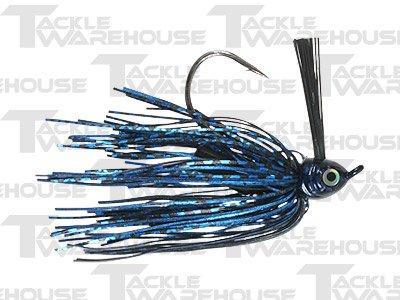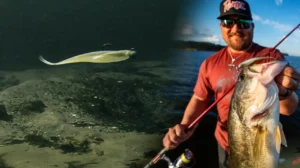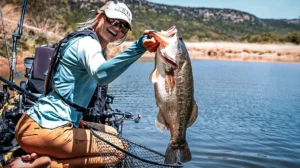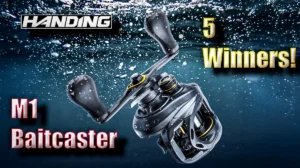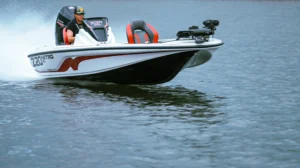As anglers, we sometimes over think baits and techniques. Even the pros do at times. We generally get comfortable and look for a “catch-all” for every situation. That can mean lost fish some of the time. Lost fish can mean lost wages to the pros, and for weekenders, it means a good situation can turn into a bad one. Simplifying the game and getting down to the nitty gritty details can make a difference and help every angler put more fish into the boat.
Fishing a jig is a go-to technique for both shallow and deep water fishing, and again, it’s the little things that make a difference. A jig is a big fish bait but learning that one jig is specific to an application may be incorrect.
We recently had the chance to sit down with one of the worlds best and most knowledgable jig anglers, Denny Brauer, and get his thoughts on jigs and the hooks that are used. Below is that conversation.
Wired2Fish: Denny, we have recently been doing a ton of research on jigs and the quandry comes down to lost fish. Jig flex seems to be the culprit. What are your thoughts on thin wire versus heavy wire hooks on jigs and is it ever good to have “hook flex”?
DB: I cannot see a time where flex in a jig hook is good. I think as anglers we sometimes over analyze jigs. Sometimes we are looking for a lighter wire, sometimes we want super heavy wire, sometimes we think we have to use a football head. Its really about putting more fish in the boat and to be straight up, to me it’s about matching the right jig and the right equipment. Using 20-pound test, a long heavy rod and a thin wire hook is counter productive. The thin wire is better for penetration, but combined with heavy line, the hook will flex. That’s bad.
I am a firm believer in matching the gear with the type of hook and the type of jig. I have seen some companies put a thinner wire hook on a 3/4-ounce football head, and I think that is bad.You maybe get better penetration, but ultimately that type of jig means it will flex and you lose the fish. I seldom use a super heavy wire hook unless I am using braid and a flipping stick. Most applications call for a medium wire hook and a great point.
That is where the rubber meets the road. Matching the hook to the rod, reel, and line is critical. It’s not just about the size of the jig but what application that determines that.
W2F: With that said, let’s go down a path and talk about situations. In the last several years, the football head has taken the front seat for offshore fishing due to its ability to come through rocks, shells, etc. Is it the best choice for this in your opinion?
DB: Let me put it to you this way. I have probably thrown a jig as much as anyone, and to be honest I am not convinced that a football head is the best jig for deep water. Let me tell you why. The size of the head is large and it can cause poor hook-ups. A football head works well in rocks and heavy cover but I have moved back to my heavy 1/2-ounce Premier Pro Model Jig with the bulit in rattle. I don’t miss any fish and it comes through cover just as effectively. The rattle serves as a keel and a good planing surface, and I find I hook just about everything in the top of the mouth. Right where I want to hook them. The hook has both good penetration and strength. Sometimes we over think things and this jig handles the deep water real well. New products get the most attention, but sometimes the old tried and true is the best option.
W2F: What type of point do you like best and what about the barb?
DB: I really feel the Mustad Needle Point is the deal. Cutting edges make too big of a hole and can tear loose. The needle point penetrates very well and it has the perfect barb to hold the fish on the hook too. You have to look at the barb and the type of hook for a perfect match. A thin wire hook with a big barb will not allow for good penetration. I have been known to take a pair of needle nose pliers and smash the barb down on finicky biters. Then it’s all about pressure and hook set. BASS photo
Do you have any more jig questions for Denny? If so, send them to feedback@www.wired2fish.com and we will do our best to get them answered.


